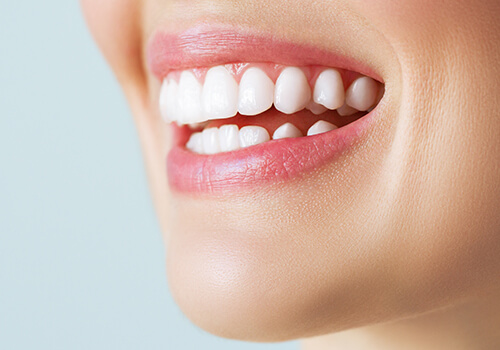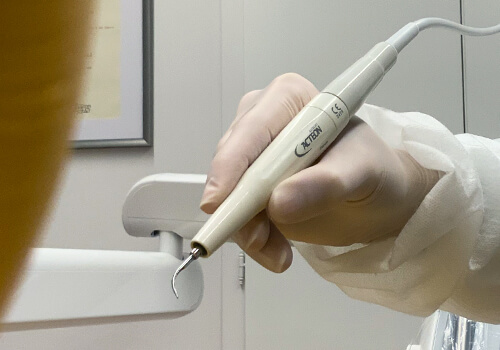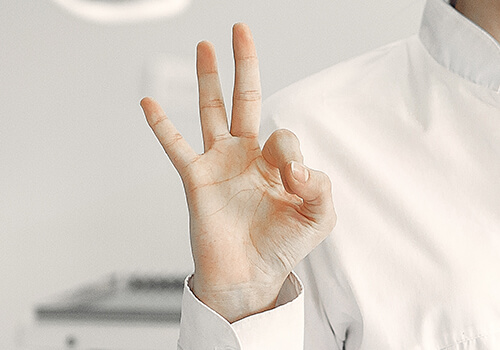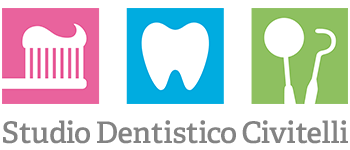Hygiene and Prevention
The health of our mouth and teeth depends on how we take care of them.
When oral hygiene at home is not adequate or missing, professional oral hygiene comes to help.
The dental hygienist removes plaque, tartar and sedimented residues that we can’t eliminate just with our daily cleaning.
We highly recommend six-monthly visits to preserve dental health. Prosthesis such as the Toronto bridge (permanently attached to previously implanted implants and provided with artificial gums) should be removed every 4 or 6 months, to favours the cleaning of the prosthesis itself and the tissues under it.
The air-flow is a cutting-edge tool to clean your teeth using a combination of water, compressed *air* and fine powder particles, delivered right on the surface of your teeth to remove stains, plaque and food debris.
The Air-flow is an alternative to the traditional curette and scaler, it is soundless and more pleasant for the patient, whose stress-level decrease.
The dentist can then decide whether or not to proceed with the professional application of fluoride. Fluoride can re-mineralise teeth enamel to strengthen the teeth and prevent the formation of decay-causing bacteria.
Italian Dental Association and dental hygienists recommend having a professional tooth cleaning every six months or, at least, once a year. Depending on the accumulation of plaque and tartar, how we brush our teeth and the use of dental floss, the number of regular hygiene sessions may vary.
In the case of gingivitis, chronic periodontitis, pregnancy, dental crowding or therapies causing dry mouth (xerostomia), it is essential to book a hygiene session every 2-3 months.
Our Tips

Prophylaxis Cleaning with calcium phosphates
We recommend regular applications of calcium phosphates-based products to maintain the correct enamel mineralisation and prevent caries, white spots, sensitive gums etc., especially during childhood.

Fill up tooth grooves with sealants
The OMS and the Department of Health recommend sealants to fill up the grooves in permanent molars and premolars to guarantee a better cleaning of children’s teeth occlusal surface and prevent the risk of bacterial infiltration and decay.
This procedure is painless and safe but must be carried out according to the correct timing of intervention.
The dentist will guide you in choosing the right moment to carry out this important form of prevention.

Periodic checks
We recommend at least six-monthly visits and professional hygiene sessions.
